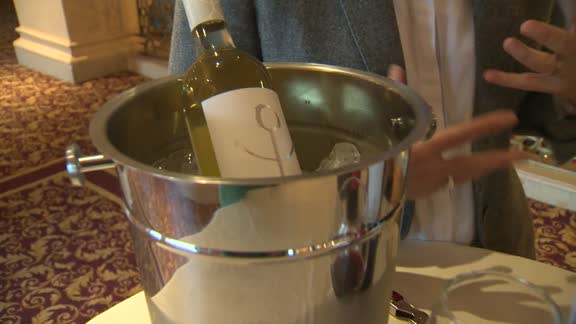 Daily Brew
Daily BrewBan on importing alcohol inter-provincially being challenged

A Canadian legal charity that works on cases pro-bono is crowdfunding Canadians for the cause of free beer.
The Indiegogo campaign launched by the Canadian Constitution Foundation (CCF) is aiming to raise $20,000 for the legal defence for a New Brunswick man who was charged with illegally importing liquor into his home province from Quebec in 2012. Gerard Comeau, a retired steelworker, was fined $292.50 after buying 17 cases of his favourite beer from a Quebec liquor store.
New Brunswick’s liquor law prohibits importing more than one bottle of wine or 12 pints of beer from another province.
The CCF intends to challenge the outdated law, saying it goes against section 121 of the Constitution Act of 1867, which protects the free flow of goods from one province into another.
“We’re not planning to give away free beer,” Karen Selick, CCF’s litigation director tells Yahoo Canada News. “We’re trying to free up the inter-provincial transportation of beer.”
Mark Hicken is a lawyer with the Vintage Law Group, a law firm that provides legal services to the wine industry. He explains that Canada’s confusing liquor laws date back to Prohibition, when each province entered into it at different times, and enforced different rules.
To prohibit one province, which might have still been under Prohibition, from accessing liquor from another that wasn’t, the federal government enacted the Importation of Intoxicating Liquors Act that made it illegal to transport any alcohol across provincial boundaries.
The law was passed in 1928, and was amended in 2012, which created exceptions between provinces for personal consumption. Yet, the act still refers to provincial laws, giving provinces the final say on how much alcohol can be sold inter-provincially.
In New Brunswick, you’re allowed to buy a higher quantity of alcohol from the United States than you are allowed to bring beer from another province.
The only provinces that openly permit inter-provincial shipment of wine are British Columbia, Manitoba and Nova Scotia. Saskatchewan joined the club recently, but under confusing guidelines that include obtaining a permit. Beer shipment is forbidden between most provinces, except Manitoba.
“What we’re left with now is a patchwork quilt of different regulation where a few provinces that actually publically allow inter-provincial shipment, and most of them are saying you can’t do it,” he says. “It’s easier for a B.C. winery to ship to a customer in New York than it is to ship to a customer from the province next door. It’s a ridiculous situation. Provincial governments should look beyond their immediate revenue concerns.”
Robert Jackiewicz echoes that sentiment. He’s the co-founder of Brew Box, which facilitates the sale of over 30 Ontario craft beers online, within the province. He says the current laws hold up monopolies of large liquor companies that work with the provinces to maintain the status quo.
“We’re still living in a Prohibition nanny state that stifles new business and entrepreneurship,” he says.
The CCF’s crowdfunding efforts are relevant to anyone who operates a small brewery or winery — as well as any who enjoys a good drink, Selick says.
“(It concerns) any ordinary Canadian who thinks the monopolies that the provincial governments have are wrong, who’d like to be able to say, ‘I’d like to try another beer that the Beer Store doesn’t sell, maybe something from British Columbia,’” she says. “People should have that freedom.”

